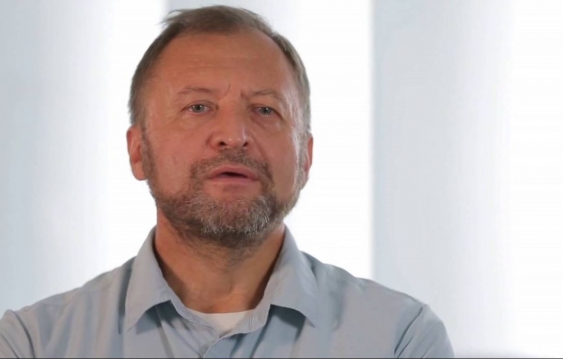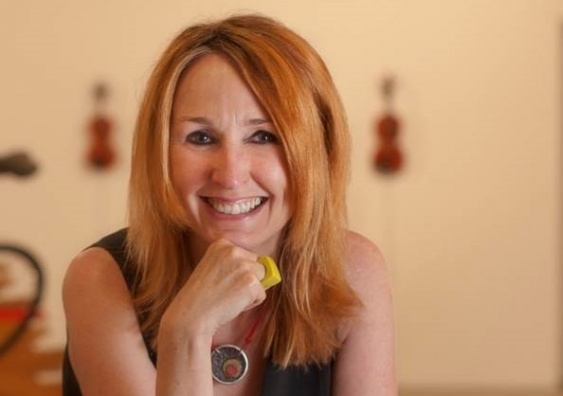UNSW has won more than $20 million in the latest round of grants from the Australian Research Council (ARC), including two prestigious Australian Laureate Fellowships, 13 Future Fellowships and funding under ARC’s Industrial Transformation Research Program (ITRP).
Professor Jill Bennett and Professor Fedor Sukochev were among the 17 Australian Laureate Fellows announced today by Education Minister Simon Birmingham.Their projects, worth a combined $5.3 million, will involve research on immersive visualisation that allows users to see the world through the eyes of others and breakthrough mathematical methods that could solve difficult problems in the physical world.
UNSW's 13 Future Fellowships were among 91 announced in the Australia-wide scheme, worth more than $77 million, and the highest number in NSW. The UNSW Future Fellowships, totalling $11.2 million, included work to develop new methods to analyse large and complex data sets, and an investigation into collecting more accurate information on the human influence behind heatwaves.
Professor Guan Yeoh from UNSW Engineering was awarded $4.3 million to establish the ARC Training Centre in Fire Retardant Materials and Safety Technologies, one of nine training centres receiving a total of $37 million over five years. As well as training industry-focused researchers to improve the fire safety of lightweight materials and structures, it is expected the centre will create knowledge on green and durable fire-retardant materials, advanced fire models for urban and built environment, fire suppression technologies and new flammability tests.
Deputy Vice-Chancellor (Research) Professor Nicholas Fisk congratulated all UNSW's grant recipients.
"These outstanding results are a testament to the extraordinary work being done at UNSW. Australian Laureate Fellowships are highly coveted in the Australian research sector and are quite rightly regarded as the pinnacle of achievement for researchers," Professor Fisk said. "None are more deserving than Jill Bennett and Fedor Sukochev."
UNSW significantly increased its number of ARC Future Fellowships compared to last year's round.
"Future Fellows are the research stars of tomorrow and these grants provide them with the funding, support and time they need for outcomes-focused research that will tackle the most pressing issues facing Australia, from climate change to children's literacy," Professor Fisk said.
The work of UNSW's two Laureate Fellowship winners could not be more different.
Jill Bennett, Professor of Experimental Arts and founding Director of the National Institute for Experimental Arts (NIEA) at UNSW Art & Design, was awarded $3.2 million over five years to harness immersive visualisation technology and pioneer a new approach to the study of subjective experience.
Professor Bennett, who merges art with technology to generate new insights into social and health issues, plans to develop a virtual ‘Perception Environment’ that simulates seeing through the eyes of another, with the goal of changing people’s capacity to understand stigmatised and devalued populations and alleviating the effects of stigmatisation and prejudice.
She hopes the project will advance understanding of the experience of ageing, and substantially develop our capacity to promote empathy.

Professor Fedor Sukochev.
Fedor Sukochev, Professor of Pure Mathematics with UNSW’s School of Mathematics and Statistics, was awarded $2.1 million to solve difficult problems that have stymied progress in the area of quantum or noncommutative calculus.
Professor Sukochev, a world leader in the use of algebraic approaches to solve complex analytic problems, will initiate collaborations with top mathematical researchers from around the world and bring together two separate mathematical areas into a powerful new set of tools.
The project’s outcomes will impact research at the forefront of mathematical physics and other sciences and enhance Australia’s reputation and standing, he says.
The ARC’s Future Fellowship scheme provides funding over four years to highly qualified mid-career researchers working in areas of critical national importance as an incentive to keep them in Australia.
UNSW’s successful applicants include:
- Associate Professor Laura Shepherd, from UNSW Arts & Social Sciences, awarded $868,000 to improve knowledge about efforts to counter terrorism and violent extremism and the United Nations’ Women, Peace and Security agenda.
- Associate Professor Scott Sisson, from UNSW Science, awarded $1 million to develop the statistical foundations of a new approach to analysing large and complex data.
- Dr Sarah Perkins-Kirkpatrick, from the Climate Change Research Centre, awarded $686,491 to provide more accurate information on the human influence behind heatwaves and their impacts.
- Associate Professor Stuart Kahn, from UNSW Engineering, awarded $1 million to better monitor the performance of advanced oxidation processes used to treat recycled water for drinking.
- Dr Kristin Laurens, from UNSW Medicine, awarded $865,900 to identify the factors that contribute to variations in children’s developmental pathways to literacy and numeracy.
- Dr Jonathan Beves, from UNSW Science, awarded $762,504 to use visible light to develop synthetic molecules capable of performing complex tasks such as controlled molecular motion.
The Government awarded a total of $170.6 million to 120 projects.
Senator Birmingham said: "This latest round of funding for these 120 projects backs in our support for Australia's world-leading research sector."
Read the full list of UNSW recipients at the ARC website.



